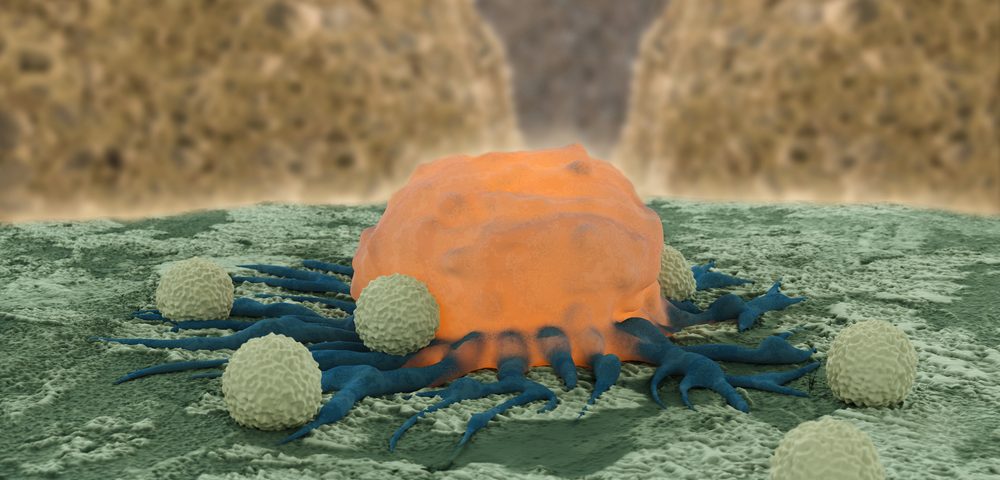Patients with adult T-cell leukemia/lymphoma (ATLL) who were treated with Poteligeo (mogamulizumab), an anti-CCR4 monoclonal antibody, may be at higher risk for serious graft-versus-host disease (GvHD)-related complications following allogeneic hematopoietic stem cell transplantation (HSCT), according to the results of a Japanese study.
The study, “Pretransplantation Anti-CCR4 Antibody Mogamulizumab Against Adult T-Cell Leukemia/Lymphoma Is Associated With Significantly Increased Risks of Severe and Corticosteroid-Refractory Graft-Versus-Host Disease, Nonrelapse Mortality, and Overall Mortality.” was published in the Journal of Clinical Oncology.
HSCT is one of the treatment options for ATLL patients who progressed despite, or failed to respond to, aggressive chemotherapy regimens. A common side effect of HSCT is the development of GvHD, in which the donor’s immune cells attack healthy cells in the recipient’s body. Regulatory T cells (Tregs) play a critical role in preventing progression to GvHD by modulating the activity of donor immune cells against healthy tissues while retaining the donor cells’ ability to kill tumor cells.
Poteligeo, a monoclonal antibody approved in Japan for ATLL treatment, has been shown to increase the response rate of patients receiving chemotherapy. However, because Tregs highly express CCR4, Poteligeo treatment significantly depletes Tregs, which is a major concern in HSCT settings. (Poteligeo is under evaluation in clinical trials in the U.S. and Europe.)
To assess whether Poteligeo treatment was associated with poor outcomes in ATLL patients, the researchers examined 996 patients, ages 70 or younger, who had undergone HSCT. All patients had received intensive chemotherapy with multiple drugs as first-line therapies, 82 received Poteligeo at a median of 45 days prior to transplant.
Results revealed that grade 3 or 4 GvHD was nearly two times more common in patients who took Poteligeo before HSCT than in those who did not receive Poteligeo. Furthermore, those who received Poteligeo were significantly more likely to require systemic corticosteroids for their acute GvHD compared to those that did not receive Poteligeo.
Consistent with these observations, the researchers revealed that the one-year cumulative incidence of non-relapse mortality, which is often due to GvHD, was significantly higher in the Poteligeo group (43.7% versus 25.1%).
Moreover, the closer in time to HSCT that Poteligeo was given to patients also negatively affected patient outcomes. Specifically, results showed that those who received Poteligeo less than 50 days before transplant therapy had a one-year overall survival rate of 20.2%, compared to 44.1% in those who received Poteligeo 50 or more days before HSCT.
“Pretransplantation Mog [Poteligeo] was significantly associated with an increased risk of GVHD-related mortality, which supports the relevance of CCR4-expressing Tregs after allo-HSCT in humans,” the researchers wrote. “In clinical practice, Mog should be cautiously used for patients with ATLL who are eligible for allo-HSCT.”


